When Wang Yijun put Ethiopia's most expensive real estate project on the market, he experienced a strange phenomenon. People preferred the lowest floors over those with panoramic city views.
"Power cuts mean elevators in this city often don't work," explains Wang, the site manager. "So the bottom-floor flats became the most valuable. You won't see this pricing in any Chinese city."
Replicating China's urban model in Africa has its challenges, but with limited developable space in Addis Ababa -- the capital is surrounded by protected farmland -- Wang believes high-rise living, such as Tsehay Real Estate's $60 million Poli Lotus development, is inevitable.
Theodros Amdeberhan, an Ethiopian lawyer, last year bought a three-bedroom, fifth-floor apartment here for about 3.5 million birr ($127,000). "Local developers never deliver on time," says Amdeberhan. The complex opened in 2016, and so far 70% of lots have sold. "When Mr Wang offered me a good price, I didn't hesitate," he says.
With red lanterns swaying over its entrance, the palm-tree peppered compound of 13 towers could easily be in Shenzhen, Chongqing or the suburbs of Shanghai. It's the sort of Chinese-ification that permeates much of Addis.
Cars chug through the city on smooth Chinese roads, Chinese cranes lift the skyline, sewing machines hum in Chinese factories in Chinese-owned industrial parks, tourists arrive at the Chinese-upgraded airport and commuters ride modern Chinese trains to work.
Simply put, Addis Ababa is becoming the city that China built -- but at what diplomatic and economic cost?
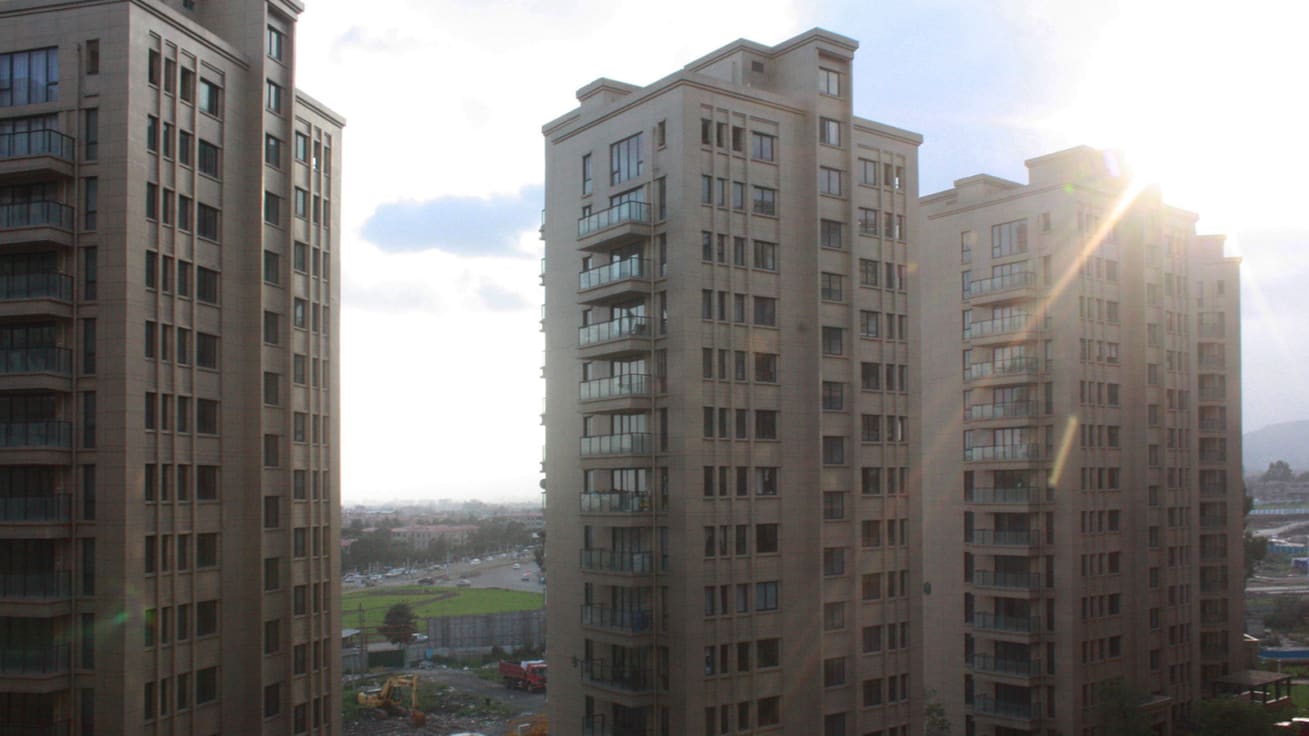
A city without addresses
Located 2,355 meters above sea level, Addis Ababa is one of the highest capitals in the world. Officials say 2.7 million people call it home, but that's based on a census from 2007. The real number is surely far bigger. Few buildings here have addresses, so taxi drivers operate by landmarks.
And because Ethiopia was never colonized, barring a brief Italian occupation between 1936 and 1941, Addis lacks the European infrastructure that underpins many African metropolises. "It was never planned to be a city," says Alexandra Thorer, an architect who lived in Addis as a child, and wrote her thesis on the city's urbanization.
By the turn of the 21st century, Addis' population had swelled and its dirt roads badly needed upgrading. At the same time, China was pursuing stronger ties with African nations -- in 2000, Beijing held the inaugural Forum on China-Africa Cooperation, now a triennial deal-making pow wow.
The Ethiopian government saw China as a model for development and courted it for infrastructure, says Ian Taylor, a professor in African political economics at the University of St. Andrews, in Scotland.
In two decades, the Chinese provided Addis with an $86 million ring road, the Gotera Intersection ($12.7 million), Ethiopia's first six-lane highway ($800 million), and the Ethio-Djibouti Railway line ($4 billion), which connects the landlocked country to the sea, to cite a sprinkle of projects. The speed at which Addis grew, says Thorer, mirrored the pace of 21st-century urban explosion in China.
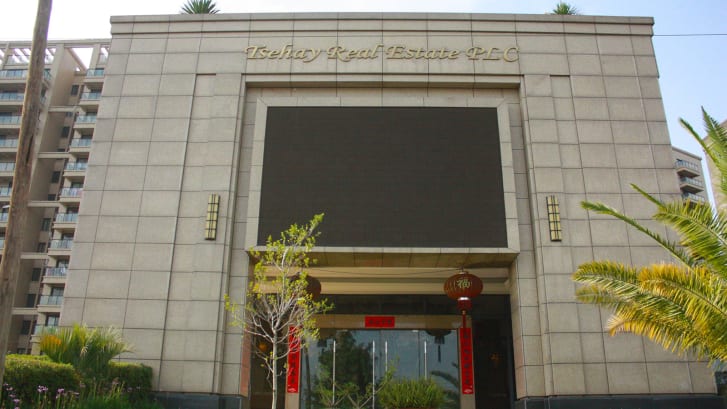
The Poli Lotus estate on the outskirts of Addis Ababa cost Chinese firm Tsehay Real Estate $60m
China also built the first Metro system in Sub-Saharan Africa in Addis. Its two lines cut through the heart of the city, and carry at least 30,000 passengers an hour, who pay 6 birr ($0.30) a ride. "I thought it would fail quite quickly," says Thorer, "but actually it's really well used."
"Addis has been radically transformed," says Taylor. "Huge skyscrapers are changing the whole profile of the city." A 46-story glass tower will be the tallest in Ethiopia when finished in 2020 by the China State Construction Engineering Corporation.
The city's most symbolic skyscraper is, of course, the futuristic African Union (AU) headquarters. Gifted to Addis by Beijing in 2012, the $200 million structure resembles nothing in Ethiopia.
"I didn't realize how Chinese it was until I went to China," says Janet Faith Adhiambo Ochieng, communications officer at the African Union. "Then I was like: 'Wow.'"
Getting in the red
In the early 2000s, Irish singer-songwriter Bono was part of a chorus of celebrities asking Western countries to cancel African debt, which was costing some governments three times more than healthcare. When the G8 agreed to waive $55 billion from mostly African accounts in 2005, Bono called it "a little piece of history."
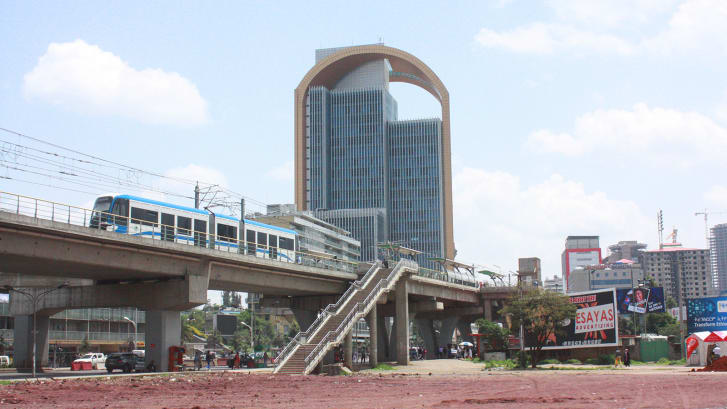
The Metro train passes through central Addis Ababa
Fast forward a decade, and Africa owes China about $130 billion, according to the Johns Hopkins SAIS China-Africa Research Initiative -- money which has mainly been used to fund transport, power and mining projects.
The continent lags behind other developing regions in virtually all infrastructure sectors, be it electricity, road or railroad performance. "Western companies and organizations such as the IMF and World Bank weren't offering money for that type of stuff," Taylor says.
China's credit line to Africa has provoked criticism. Earlier this year, Rex Tillerson, then US Secretary of State, said that China's "predatory loan practices" in Africa "mire nations in debt and undercut their sovereignty, denying them their long-term, self-sustaining growth."
Ethiopia has taken at least $12.1 billion from Chinese creditors since 2000. But overall the country is $29 billion in the red -- it owes more collectively to the Middle East, the World Bank and others than to China. The same is true for the majority of African countries.
A report published this month by the Johns Hopkins SAIS China-Africa Research Initiative found that Chinese loans are "not currently a major contributor to debt distress in Africa."
"We're emerging into a new phase of a China-centric world order," says Solange Chatelard, academic and research associate at the Université Libre de Bruxelles in Belgium. "The former hegemonic powers are having a hard time adjusting to their decline."
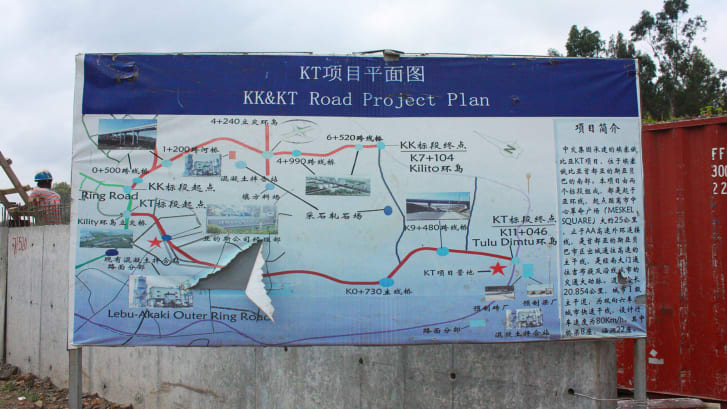
A sign outlining the plan for Chinese constructed roads in Addis Ababa
Lina Benebdallah, assistant professor of politics and international affairs at Wake Forest University, North Carolina, however, cautions that the China-Africa relationship is "asymmetric." In 2016, for example, China exported $88 billion in goods to Africa, but only imported $40 billion from the continent.
And there are countries with worrying amounts of Chinese debt. In Djibouti, China holds 77% of national debt, while Zambia's $6.4 billion in Chinese loans represents the lion share of its commitments. A spokesperson for China's Ministry of Foreign Affairs (MOFA) told CNN via email that China has paid "high attention" to African debt situation, and is dedicated to "sustainable development."
Twisting Ethiopia's arm?
One of the big concerns around Chinese loans is debt-trap diplomacy -- the idea that Beijing will pressure countries that can't pay into exploitative deals.
At the imposing prime minister's office building in Addis Ababa, Arkebe Oqubay, a senior government minister, is adamant that Ethiopia hasn't seen any arm-twisting from China. "One of the unique things that makes Chinese funding quite attractive is they practice non-intervention in local politics," he says.
And Beijing has been demanding that African nations cut diplomatic ties with Taiwan, under its "One China Policy," for decades he says -- debt or no debt.
Luke Patey, a senior researcher at the Danish Institute of International Studies, sees it differently. He cites the example of Sri Lanka as the "canary in the coal mine."
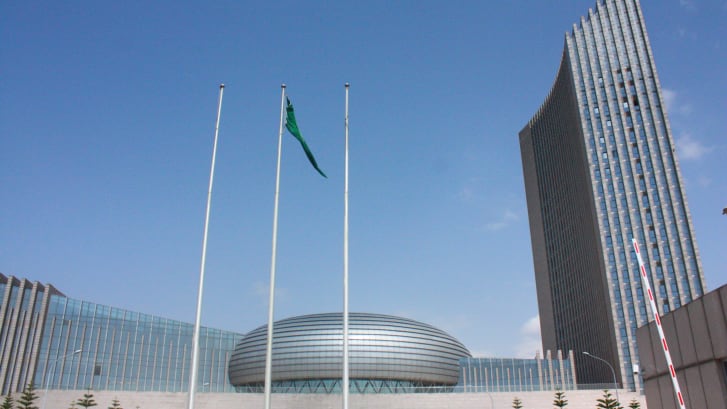
The Chinese-built African Union in Addis Ababa, Ethiopia, in August 2018
In 2010, Beijing invested $1.5 billion to build the Hambantota port. When Sri Lanka couldn't repay the debt, it signed a 99-year lease of the port with a Chinese state-owned company to service some of the billions it owed.
"If developing countries do not pay greater attention to how they manage their debt with China, we're going to see a growing number selling off large stakes in key sovereign assets," Patey says.
Another concern is national security. Earlier this year, French news outlet, Le Monde, alleged that Beijing had spied on the African Union through the computer systems it helped install. China's foreign ministry said the report was based on "groundless accusations" and the AU disregarded the allegations as "baseless." But the rumours raised eyebrows, as China builds symbolic political facilities across Africa.
"The Germans could have bugged that building," Ochieng says, pointing to the far more modest Peace and Security facility Angela Merkel's government gifted the AU in 2016. "But will the story that the Germans are watching Africa sell as well?"
When Western powers see a city like Addis Ababa awash with Chinese influence, there is the knee-jerk reaction that "China has an ulterior motive," says Benebdallah. But it's often the case, says Taylor, that Chinese companies don't face Western competition for construction contracts. Once Chinese firms have shipped their equipment, they may as well stay put and capitalize.
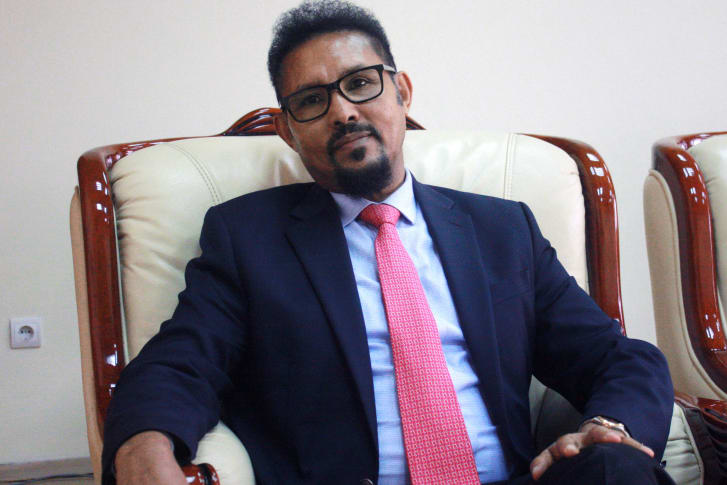
Government minister Arkebe Oqubaby at the prime minister's office in Addis Ababa, Ethiopia
For Patey it's not that simple. When China finances roads, railways, and hydropower dams, he says, it stipulates that Chinese construction companies build them with Chinese concrete and steel. "Africa has served as a launching pad for Chinese ... companies to gain overseas experience," he adds. "It's where China Inc cuts its international teeth."
A MOFA spokesperson told CNN via email that Chinese companies in Africa operate "independently" and that the Chinese government is "committed to equal negotiations," and had no interest in "lecturing countries."
On a Friday afternoon at Poli Lotus, Theodros Amdeberhan's teenage son plays FIFA on the wide-screen TV, while the maid roasts coffee and a picture of the Eiffel Tower hangs over the sofa in their Chinese-built apartment.
When asked how he feels about the Chinese molding Addis Ababa in their country's own image, Amdeberhan says: "I once went to China and noticed that they have this way of building city centers that can incorporate all the needs of the people." With the higgledy-piggledy chaos of unplanned Addis just beyond his window, he says it's an appealing concept.
Latest Stories
-
Abla Dzifa Gomashie appointed minister-designate for Tourism, Culture and Creative Arts
5 minutes -
Christmas festivities: Retail sales value increased by18% – Maverick Research
7 minutes -
Real estate development, construction drive economy growth, create jobs
16 minutes -
Scrapping betting tax is a step forward; it was counterproductive – Sammy Awuku
29 minutes -
Record label hits back at ‘illogical’ Drake lawsuit
39 minutes -
I have always been against betting tax – Sammy Awuku
42 minutes -
Ghana drops to 13th in Africa with lowest fuel price
52 minutes -
Hallel Praise: Pastor Edwin Dadson drops medley jam with Joe Mettle
54 minutes -
How Mahama can help save Ghana’s dying textile industry
1 hour -
Mahama Ayariga to replace Ato Forson as Majority Leader
1 hour -
Cost of transporting foodstuffs a major contributor to high inflation – GSS reveals
2 hours -
U.S. Senator wants Ghana to pay off debts to American companies with IMF funding or…
2 hours -
Ghanaian Sakafia Islamic SHS wins the 2025 Zayed Sustainability Prize
3 hours -
Pack of ‘hungry’ dogs kill Nigerian woman in Italy
3 hours -
From the Pitch to the Studio: Joseph Painstil’s Musical Journey
4 hours

